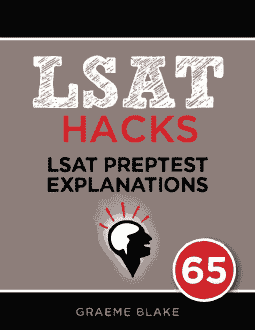DISCUSSION: Lines 27-29 talk about threatening to turn in a criminal. That’s ‘bargaining with the state’s chip’.
It means using the government as a threat. Bargaining with a chip seems like a gambling reference. But what I really want you to know is that it doesn’t matter if you don’t understand what “bargaining with the state’s chip” means, exactly. You just need the gist of it. You surely know what “bargaining” and “state” mean. So a blackmailer uses the state in negotiations with their victim.
If you blackmail someone by threatening to report their crime, you’re not threatening the criminal with your own resources. You’re letting the government’s threat do your dirty work.
___________
- You’re not determining that the criminal’s actions are a crime. The criminal knows that he committed a crime, and you know. But the government doesn’t know. That’s why you can threaten to turn him in.
- CORRECT. ‘The state’s chip’ is that it wants to hear about crimes and will punish them.
This question is a little confusing. It’s easiest to answer if you think about what the blackmailer is threatening to do: they will tell the government that you committed a crime. - The crime already occurred. The blackmailer is considering telling the government about the crime.
- Err….a government definitely doesn’t rely only on citizens for information. They also have police and bureaucrats to gather information.
- The government can’t compel the blackmailer to testify. The government doesn’t know that the blackmailer knows anything. That’s the entire point of the threat: the crime is unknown to the government.


I agree this question was a little confusing. I read “the state’s chip” in the same way as you did: by blackmailing someone, you’re basically appropriating the state’s power to punish someone for yourself. So I didn’t think it was a reference to the state wanting to know something; I thought it was a reference to the state’s awesome power to punish someone. Thus I chose (A). I read “determining what actions are crimes” not as a matter of what I am determining, but as a reference to the state’s power to put someone on trial — a trial that determines if the person’s action is a crime. Can you help me understand where I went wrong?
(B) is correct because it gets at the nature of the blackmailer’s threat–namely, the state’s power to punish, which happens by way of awareness of a crime. The blackmailer can make the state aware of the crime (“learning about crimes committed in its jurisdiction”), and then the state can exact punishment.
(A) is incorrect because the fact that a crime has been committed isn’t in doubt. Lines 27-31 are referring specifically to a criminal.